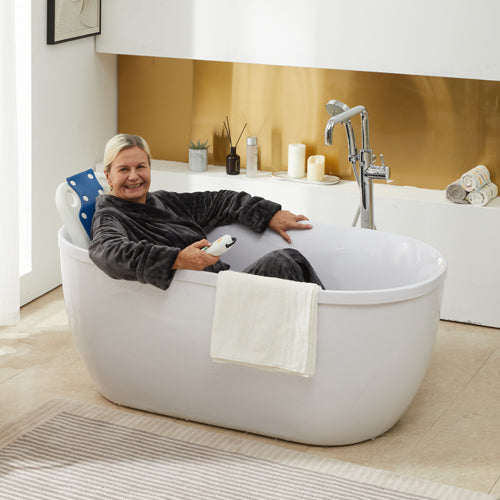There are many options to consider when looking to purchase or use a wheelchair, from simple manual wheelchairs to power wheelchairs with complex features. This involves browsing options and matching them to personal needs and lifestyle.
Essential questions to ask when purchasing a wheelchair include:
- What type of wheelchair do I need?
- How do I make sure the wheelchair is right for me?
- Are there any special accessories that would be useful?
- What maintenance requirements should I be aware of?
- Where can I find a reputable wheelchair supplier?
Answering these questions will ensure that the wheelchair chosen is not only practical but also very personalized. Let's continue to delve deeper into the topic of this article.
7 Signs You Need A Wheelchair

When considering a wheelchair purchase, first of all, it's crucial to understand the signs that may indicate your need for one. Here are seven signs you need a wheelchair:
1. Frequent Falls or Balance Issues
Falls are not only harmful, but they may also indicate muscle weakness, poor balance, or lack of coordination. If you fall frequently or have difficulty maintaining your balance while walking, it may be time to consider a mobility aid such as a wheelchair, walker, or scooter for added safety and support.
2. Chronic Fatigue or Breathlessness
Constant fatigue, breathlessness, or dizziness when walking even small distances might be a sign that you need a wheelchair. This could be the result of a variety of health conditions, such as heart disease, anemia, or lung conditions.
3. Persistent Physical Pain
Joint pain, muscle aches, back pain, or severe arthritis might limit your ability to walk without discomfort. If physical pain is causing mobility issues, a wheelchair could help to alleviate these symptoms.
4. Difficulty in Completing Daily Tasks
If you have mobility issues that affect your ability to complete daily tasks such as shopping, attending appointments, or visiting friends, both wheelchairs and some mobility scooters can provide the independence and mobility you need.
5. Diagnosis with a Degenerative Disease
If you’ve been diagnosed with a degenerative disease such as Amyotrophic Lateral Sclerosis (ALS), Parkinson’s disease, or Multiple Sclerosis (MS), a wheelchair may become essential as the disease progresses.
6. Long-Term Recovery from Surgery or Illness
Following certain surgeries or prolonged illnesses, your mobility may be temporarily affected. In such cases, a wheelchair can be greatly beneficial during the recovery process.
7. Cardiopulmonary Limitations
If you have a heart or lung condition that limits your ability to handle physical exertion, a wheelchair can help you conserve energy, and reduce strain on your heart and lungs.
Recognizing these signs and getting the right wheelchair can significantly improve quality of life and independence. Now let’s dive in and get deeper into the details of what questions we need to ask before getting the right wheelchair.
Top 5 Questions You Need To Ask Yourself Before Buying A Wheelchair

1. What Type Of Wheelchair Do I Need?
Choosing the right type of wheelchair hinges on several key factors, including your physical capabilities, lifestyle, and where you plan to use the wheelchair. Broadly, wheelchairs fall into two categories: manual and electric.
Manual Wheelchairs are propelled by the user or an attendant, making them suitable for those with sufficient upper body strength or regular assistance from someone else. They are lightweight, easy to transport, and ideal for those who are physically active and require mobility assistance for shorter distances or specific times.
Electric Wheelchairs, powered by batteries, offer mobility with minimal physical exertion, suitable for individuals with limited upper body strength or endurance. They're perfect for daily, extensive use, particularly over long distances or uneven terrains. However, electric models are heavier and usually more challenging to transport than manual ones.
Deciding which type best suits your needs involves evaluating your physical health, daily activities, and personal preferences. For active individuals with some degree of upper body strength, a manual wheelchair might offer greater flexibility. Conversely, an foldable power wheelchair could significantly enhance independence and quality of life for those with physical limitations.
2. How Do I Ensure The Wheelchair Fits Me Properly?
Ensuring your wheelchair fits properly is essential for comfort and mobility.
When determining what size wheelchair I need, it's essential to start with precise measurements, including seat width, depth, and height, as well as backrest and armrest height, to tailor the fit to your body. A healthcare professional can guide the appropriate size and adjustments needed.
When sitting in the wheelchair, check that it supports your body without causing pressure points and allows for an upright posture. Ideally, your feet should rest on the ground or footrests, and your arms should be supported without strain.
Wheelchairs with adjustable elements are beneficial, allowing for modifications as your needs change over time.
Lastly, conduct regular fit assessments and consult with a professional to maintain optimal comfort and functionality. With attention to these details, your wheelchair will be a suitable companion for your daily activities.
3. Are There Specific Accessories That Would Be Beneficial?

When it comes to enhancing the functionality and comfort of your wheelchair, certain accessories can be highly beneficial. These accessories can cater to specific needs, improve ergonomics, and help in day-to-day activities:
Cushions: A specialized cushion not only adds comfort but can also prevent pressure sores, improve posture, and aid in proper weight distribution.
Wheelchair Bags and Pouches: These are essential for carrying personal items securely and keeping essentials within easy reach.
Gloves: For manual wheelchair users, gloves can prevent blisters and improve grip on the wheels.
Ramps: Portable ramps enable wheelchair users to overcome curbs and steps more easily.
Wheelchair Covers: Protect your wheelchair from rain and dust with a cover, especially if you spend a lot of time outdoors.
Anti-Tip Devices: These can be attached to the back of the wheelchair to prevent it from tipping backward.
Seat Belts and Harnesses: For additional safety and to maintain proper positioning, seat belts and harnesses can be very helpful.
Armrest and Leg Rest Accessories: These enhance comfort and can be adjustable to suit different body sizes and positions.
Drink Holders: Staying hydrated is important, and a drink holder can make carrying a water bottle convenient.
Selecting the right accessories depends on personal needs, lifestyle, and the type of wheelchair you have. It's important to assess which additions will bring the most improvement to your mobility experience.
4. What Maintenance Requirements Should I Be Aware Of?
Maintaining your wheelchair is crucial to ensure its longevity and safe operation. Here are the fundamental aspects to keep in mind:
For Manual Wheelchairs
Regular Cleaning: Wipe down surfaces to prevent dirt build-up. Clean the seat and backrest with suitable fabric cleaners.
Wheel Inspection: Check that the wheels are true (not wobbling) and replace them if they're worn. Inspect the spokes for tension and alignment.
Tire Pressure: Keep pneumatic tires properly inflated according to the manufacturer's recommendations.
Brakes: Test the brakes regularly to ensure they engage fully. Adjust or replace them as necessary.
Bolts and Fasteners: Periodically check that all hardware is tightened and replace any that are missing or damaged.
Lubrication: Apply lubricant to moving parts like wheel bearings and pivot points to keep them moving smoothly.
For Electric Wheelchairs
Battery Care: Properly charge the batteries according to the manufacturer's guidelines. Avoid deep discharging.
Electrical Connections: Check that all connections are secure and that wires are intact, without signs of wear or damage.
Joystick and Controls: Ensure smooth operation of the joystick and buttons. Keep them clean and free from obstructions.
Motor and Gears: Listen for unusual noises that could indicate wear. Consult a technician for regular check-ups.
Frame: As with manual wheelchairs, keep the frame clean and inspect for structural integrity regularly.
Common to Both Types
Regular Check-Ups: Schedule regular professional check-ups to ensure everything is in working order.
Manufacturer’s Instructions: Always refer to the manufacturer’s manual for specific maintenance guidelines suited to your model.
Adhering to a regular maintenance schedule not only prevents breakdowns but also assures your safety and comfort while using the wheelchair.
5. Where Can I Find Reputable Wheelchair Suppliers?
When wondering where to buy a wheelchair and searching for reputable wheelchair suppliers, it's crucial to prioritize quality and reliability over mere convenience. While there's a plethora of options available online and through specialized medical equipment stores, selecting a top-notch wheelchair is of utmost importance. Engaging with a supplier that understands the importance of both form and function ensures that your mobility needs are met with the highest standards.
VOCIC stands out as a premier brand in this regard, boasting over a decade of dedicated service in the field. Known for its commitment to excellence, VOCIC specializes in offering high-quality, functional, and cost-effective solutions tailored for home rehabilitation. Their extensive experience ensures that each product, particularly wheelchairs, is designed with the user's needs and comfort in mind.
By opting for a trusted brand like VOCIC, you not only invest in a wheelchair but also in a better quality of life, supported by durable and reliable home rehabilitation equipment.
Conclusion
When purchasing a wheelchair, especially when considering how to choose a wheelchair for seniors, it's important to not only consider how to use a wheelchair, but to do thorough research and thoughtful questions. By addressing the five basic questions outlined, you'll be better able to make an informed decision.
Remember, the right wheelchair can significantly enhance the user's quality of life, providing not only mobility but also comfort and independence. Take the time to assess your options carefully, always keeping the user's unique needs and lifestyle at the forefront of your decision-making process. With the right approach, finding the perfect wheelchair becomes a journey toward enhanced mobility and improved well-being.







